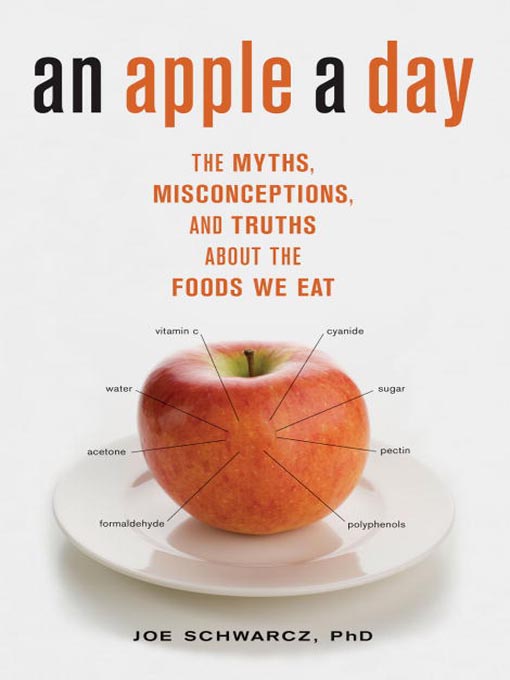
An Apple A Day
The Myths, Misconceptions, and Truths About the Foods We Eat
افسانهها، تصورات غلط و اعتماد به غذاهایی که میخوریم:
کتاب های مرتبط
- اطلاعات
- نقد و بررسی
- دیدگاه کاربران
نقد و بررسی

November 17, 2008
Widely known in Canada from his Montreal Gazette
column, and work with the Discovery Channel, Schwarcz (Let Them Eat Flax
) is an entertaining guide through the tangle of conflicting research studies, advertising claims, special interest groups, age-old myths and popular opinion that make diet a cloudy subject. In short chapters he aims his microscope at such highly touted foods as tomatoes, acai berries, curry and soy; additives like nitrites, artificial sweeteners, vitamins and fluoride; contaminants including pesticides, hormones, trans fats and dioxins; and what, for him, are suspect fads. Schwarcz contends that while there are no “magical” foods, a diet of mostly vegetables, fruits, whole grains and low-fat dairy products and moderation are key to good health. To help readers make informed choices, he ably cuts through many controversies and will likely stir up a few (he challenges those who condemn milk consumption, espouse detoxification and promote kosher foods, for example). Schwarcz makes learning fun by peppering his text with fascinating facts (coffee contains naturally occurring carcinogens, and apples have formaldehyde). More importantly, he leaves readers with a rational framework for evaluating the complex nature of foods and how they affect health.

November 1, 2008
Every day, consumers are bombarded with new food and nutrition information. Are genetically modified foods dangerous? (Maybe, maybe not.) Should we eat fish for the omega-3 fatty acids or avoid it because of the mercury? (Eat in moderation.) Will an apple a day really keep the doctor away? (No, but eat it anyway.) Schwarcz ("Let Them Eat Flax"), a chemist and the director of McGill University's Office for Science and Society, has created a useful reference work for harried consumers. Whether reading cover to cover or picking relevant chapters, readers will find this book a convenient way to separate food fact from food fiction. Particularly timely are the chapters "Substances Leaching from Plastics" and "The Bisphenol A Issue," which highlight current health concerns. An entire section helps debunk questionable diets. Readers will not need a PhD in chemistry to follow along; Schwarcz wisely limits technical terms to the minimum while adequately explaining the chemistry involved in digestion. His latest is strongly recommended for public libraries, especially those with consumer health and nutrition collections. Also recommended for medical libraries with consumer health collections.Rachel M. Minkin, Okemos, MI
Copyright 2008 Library Journal, LLC Used with permission.

























دیدگاه کاربران